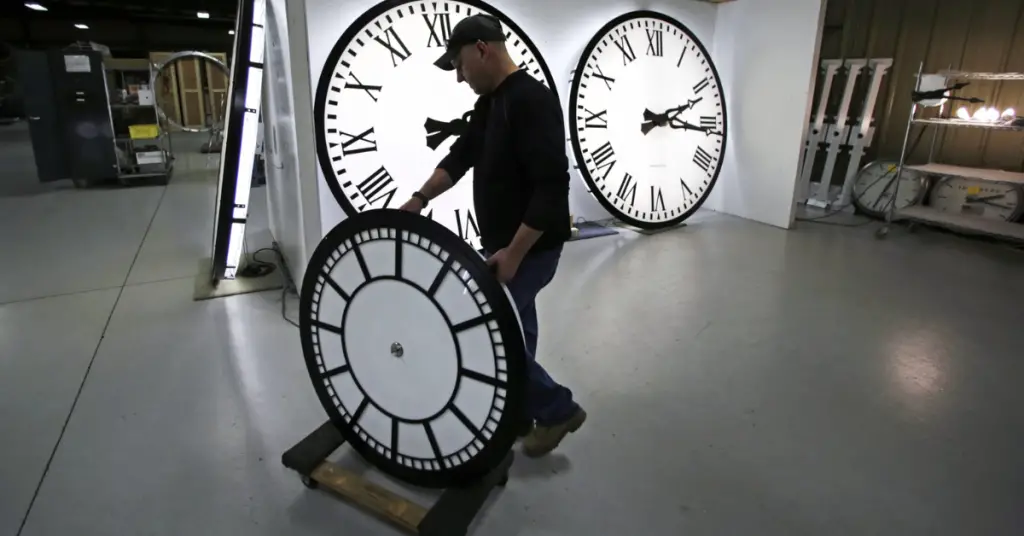Daylight Saving Time (DST) has been a part of our lives for many years, but a Florida lawmaker is now pushing for it to end. Rep. Adam Anderson, a Republican from Florida, is leading the charge to abolish DST, arguing that the time change is unnecessary and disruptive. His proposal comes as more and more people are questioning the benefits of shifting clocks twice a year. Let’s take a closer look at why this debate is gaining momentum.
What Is Daylight Saving Time?
Daylight Saving Time is the practice of setting clocks ahead by one hour during the summer months to make better use of daylight. The idea is to shift an hour of daylight from the morning to the evening, giving people more daylight hours in the evening after work or school.

In the U.S., DST starts in the spring and ends in the fall. This practice has been in place for decades, but it hasn’t always been universally accepted. Many people find it annoying and believe it causes more harm than good. Florida’s push to end it may be the beginning of a larger movement.
Why Do Some People Want to End DST?
Rep. Adam Anderson has been vocal about his reasons for wanting to end Daylight Saving Time in Florida. According to Anderson, the time change can disrupt people’s sleep schedules and lead to health issues. When the clocks are shifted, people often find it difficult to adjust. This can lead to fatigue, stress, and even more accidents on the road as people struggle to adapt to the new time.
Health experts have also raised concerns about DST’s impacts on people’s well-being. Studies have shown that losing an hour of sleep during the spring shift is linked to an increase in heart attacks, strokes, and other health problems. Moreover, the disruption to our biological clocks can have long-term consequences on our mental and physical health.
Another point raised by those opposed to DST is that it no longer serves its original purpose. When it was first introduced, DST was meant to help conserve energy during the war. The idea was that by having more daylight in the evening, people would use less electricity. However, with the advancement of technology and changes in energy consumption patterns, many argue that DST no longer significantly impacts energy savings.
What’s Happening in Florida?
Rep. Anderson’s proposal comes as many states reconsider their stance on DST. Florida, in particular, has been at the center of this debate. The state already passed a law in 2018 that would keep it on Daylight Saving Time year-round, but it needs federal approval to make the switch permanent. Anderson’s new push aims to make Florida the first state to end DST and move to standard time year-round completely.
Anderson believes that eliminating DST would improve Floridians’ health outcomes, reduce car accidents, and improve their overall quality of life. While there is still much to debate about whether this change is the right move, the growing support for eliminating DST in Florida is certainly raising eyebrows.
What Are the Benefits of Ending Daylight Saving Time?
Supporters of ending DST argue that there are several potential benefits. For one, people wouldn’t have to adjust their clocks twice a year. This change could lead to fewer disruptions in sleep and help people maintain a more consistent sleep schedule. It could also improve mental health, as individuals would have one less thing to worry about every year.
Additionally, proponents of ending DST argue that it could improve productivity. Without the biannual clock change, people may feel more refreshed and energized. With a more predictable and stable daily routine, people could focus better on work, school, and other important tasks.
From a safety perspective, eliminating DST could also help reduce accidents. Studies have shown that the transition into Daylight Saving Time can increase the risk of accidents and injuries. By sticking to one time system, people may avoid the confusion and stress that comes with the time change.
Will Florida’s Proposal Lead to Other States Following Suit?
Florida is not the only state where lawmakers are debating whether to keep or abolish DST. In recent years, several other states have also considered the pros and cons of DST, and many have introduced legislation to either make DST permanent or abolish it altogether. California, for example, voted in 2018 to keep DST year-round, but the law also requires federal approval.
If Florida successfully ends DST, it could set a precedent for other states to follow. The momentum for change is certainly building, as more and more Americans are asking whether the practice of changing the clocks twice a year is still worth it.
What’s Next?
For now, Florida is continuing to push for change. Rep. Anderson’s proposal is still in the early stages, and it’s unclear whether it will pass. However, with growing public support and increasing awareness of the negative effects of DST, it’s likely that other states will begin to consider similar proposals in the near future.
While it remains to be seen whether Daylight Saving Time will be abolished nationwide, Florida’s push to end the practice is a sign that the conversation about time change is far from over. As more states look at the pros and cons, we may see significant changes to how we measure time in the future.
Disclaimer: This article has been meticulously fact-checked by our team to ensure accuracy and uphold transparency. We strive to deliver trustworthy and dependable content to our readers.




